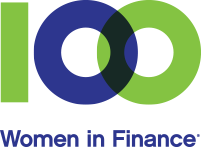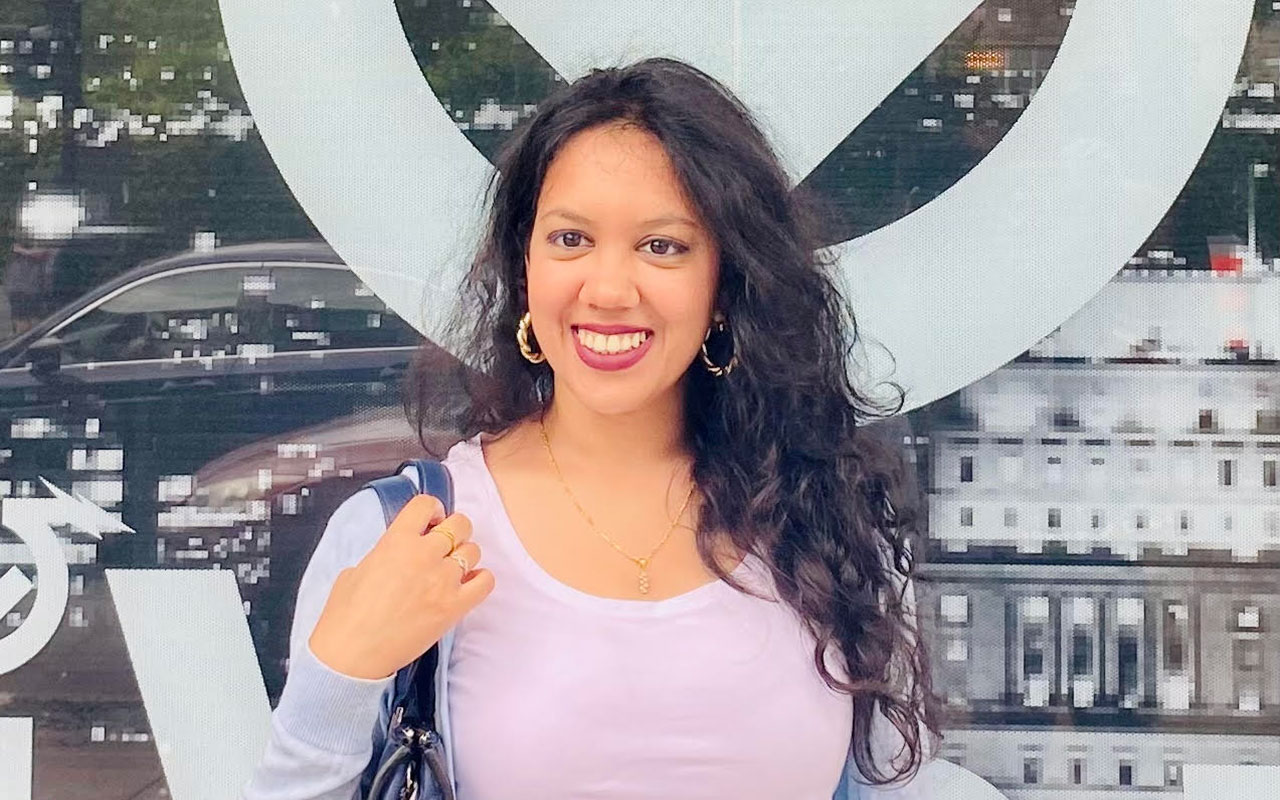By Urmi Hossain, Associate, RBC Dominion Securities
Urmi, you have a diverse and interesting background with a broad range of experience and depth of knowledge in a variety of areas. Before we dive into the specifics of a CFA designation, tell us more about yourself.
My name is Urmi and I live in Montreal, Canada.
I am a full-time employee in the financial services industry and holder of the CFA charter. I have been part of this industry for about six years and worked in different parts of the sector. So far, I have worked in medium to bigger-sized firms and worked in different departments such as compliance, middle office, AML/KYC, portfolio management, and client relationships. I have mainly dealt with institutional clients as well as high-net-worth clientele. My educational background is also in finance. I have graduated with Honors in Finance from John Molson School of Business( the faculty of business at Concordia University).
Besides working full-time, I am a self-published author, blogger, YouTuber, speaker, and mentor for various organizations. I, indeed, dedicate a big chunk of my time to volunteering for organizations that support causes related to women’s empowerment.
I believe, as human beings, once we start working, we forget to live life and live purposefully. I, on the other hand, use the time available to do the things I love, hence everything I just mentioned.
You are very successful in your finance career and a holder of the CFA charter. Explain more about what that is.
CFA stands for Charter Financial Analyst. The CFA designation is a postgraduate certification that anyone after their bachelor’s degree can pursue. The CFA program requires one to complete three exams and show that each candidate has gained at least 4000 hours of qualified experience to be a CFA charter holder.
The CFA program is a worldwide globally known designation. Those who succeed in passing the exams and meeting all the requirements end up working in asset management, investment banks, commercial bank, and more. It is one key that opens all the career doors type of tool.
100 Women in Finance supports avenues that help women interested in finance achieve success at higher levels within the industry. How can obtaining a CFA designation help advance women’s careers in finance?
Definitely, holding the CFA designation comes with prestige and recognition as it represents the dedication and hard work that each person put into work. The finance industry is very much male-dominated and based on my experience, I have seen many male colleagues holding the CFA designation rather than women. Often as women, we are not encouraged enough or educated enough to pursue a career in finance, and maybe, we have no interest in finance to begin with. As women, we tend to undervalue ourselves, in our skills, abilities, and how much we can achieve, but we do have leadership, emotional intelligence, and talent.
I think definitely pursuing and completing the CFA program is a key that will unlock the doors to many opportunities whether locally or globally. From past female mentors, I had myself, I was always encouraged to pursue this program because of the infinite opportunities I would have had and where It would have led me. Right from when I was a candidate for level 1 and level 2 exams, I would get calls from potential employers, so it definitely has its advantages.
Completing the CFA programs boosts your credibility, and reputation, and shows your devotion to the industry.
The CFA designation requires people to take a series of three exams that seem quite involved and challenging. Will you explain in more detail what these exams entail?
The CFA program consists of three levels: level 1, level 2, and level 3. Each level requires a different set of preparation. In general, each level is focused on topics such as ethics, corporate finance, quantitative, accounting, fixed income, equity, portfolio management, economics, derivatives, and alternative investments. The exams are notoriously difficult with ever-dropping passing rates ( level 1 pass rate was 38% as Feb 2023; level 2 pass rate was 40% as of August 2022; level 3 pass rate was 48% as of Feb 2023)
To give you a breakdown of what each exam consists of, level 1 is built to test your knowledge of finance and the tools we use in the financial industry. The exam itself is made of multiple-choice questions.
Level 2 is more about asset valuation and pricing of securities. The level of difficulty rises notably during the preparation of level 2 whereas level 1 is about topics you have done during your undergraduate; level 2 goes much deeper in its topics. The materials are a bit more complicated and require you an extensive understanding of them. Indeed, the exam is based on answering vignette-style questions. Level 2 is considered one of the hardest among all the levels and the level at which many stop pursuing this designation because of the high percentage of candidates failing at this point.
Level 3 is the final exam of the CFA program. At this stage of the program, you have to start thinking as if you were a portfolio manager. Each topic is interconnected with each other and the goal is applying everything you have learned so far in real-life scenarios. The questions at this point are also different, they are essay questions which don’t require you to write pages of text, but rather the main goal of this section is to be able to answer the questions with point forms by making sure you follow what the command words ask you. The purpose of this level is to test your ability to apply financial strategies for individual and institutional investors.
Based on my experience and conversations with other candidates, a lot feel that level 1 is probably the easiest exam, but you are still required to input at least 300-350 hours of study time although to my advice you need at least double of that. The passing rates of level 1 based on historic levels have been around 42% and level 3 around 50%, but with time, those numbers have been below the 50%.
You created a Youtube channel to inspire others and share how you’ve achieved your goals. One of these areas of the topic includes study methods for the CFA program. Can you tell us more about these methods?
I can give you plenty of tips and study methods. Each level requires a different approach, but I can share some tips that are applicable across all levels.
- Start early enough when it comes to preparation. A lot of candidates do the mistake of devoting 2-3 months to study for each level. That’s the biggest mistake one can do. If one wants to increase the chances of passing the exam, give yourself 6-9 months of preparation.
- Study every day. A lot of candidates can’t manage their time properly, especially if they work full-time and have family commitments. As a matter of fact, it is always wise to start early and make a plan to study a bit every day. Some days we will be taken over by work and some others for personal things. I always suggest doing at least 3-4 hours per week ( if you work full time, study a bit before going to work or study during lunchtime, or study after work). Since our professional life does take a lot of our time, I always suggest doing as much as you can during weekends, usually committing 6-8 hours per day. Studying for the CFA program is a time commitment and sacrifice, so you have to cut your time elsewhere. During the week, for those days where you absolutely can’t do 3-4 hours, I suggest at least doing 1-2 hours. It is important to be consistent with the study plan to keep the materials fresh in mind.
- Practice – The secret to passing each level is practice. As many say, practice makes you perfect, this definitely applies in the CFA program. It doesnt matter how many hours of reading you do. Passive learning won’t bring you anywhere, you need to actively learn and by active learning, you need to practice every day from all the resources available to you. Practice helps you to internalize the concepts and learn from the mistakes
- You will need self-discipline. The CFA program is a do-it-yourself program. You won’t have a teacher giving you lectures, or someone to ask questions to, but everything you do from A to Z will be based solely on you. As it is a program where you need to independently study and set your own schedule, it is easy to fall behind. As such, if you want to succeed, you will need one thing: Discipline. Every day, you will need to set time apart to commit hours going over the materials, revising, reading, practicing, and so forth. If you fall behind, it will be because of you and no one else. Discipline is a skill necessary to pass the exams.
- Setting boundaries. Tied to the concept of discipline is the concept of boundaries. When you sign up for the CFA program, there are many things you will give up: going out with friends, partying, family events, and so forth. You will often be tempted by family and friends to go out who most of the time won’t understand why you can’t be attending any of these events. You will need to learn how to say NO and set boundaries accordingly. I often said no to many social events. I had friends telling me “You have plenty of time to study” because I had 6 months ahead, but because it is a program that requires you to study on your own, you can’t let distractions slip on. This is why it’s important to draw a line and make it clear to friends/family members that you will need every single hour of the day to study.
How can one find your Youtube channel?
Just type Urmi Hossain 🙂
In addition to considering obtaining a CFA designation, women wanting to enter the finance industry may find it daunting to where to start. What advice do you offer to help women get started?
Find mentors in your industry and be part of a community such as 100 Women in Finance.
I think there is nothing better than asking female colleagues, female managers, and females friends for guidance when it comes to pursuing a job in finance or even the CFA program. It is through connections and networking that we can better navigate the industry and educate ourselves.
Is there anything else you want to share with our readers?
Two words only: resilience and tenacity
The CFA exams are hard, but they are hard for a purpose. There are people who pass all the levels on the first try while others have to repeat the exams once or twice or even more in order to get the designation. My suggestion is to never give up. When you feel like letting go, remember why you started, go back to your why, and continue trying. What will set you apart is the strength you put in getting up in the face of an obstacle and keep moving.
The diligence, persistence, the resilience will bring far you not only with the CFA exams but in life in general.

